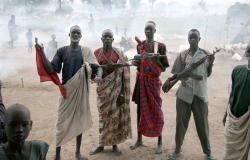
The dynamic quality of protracted intra‐state conflicts is a factor that complicates and sometimes confounds the efforts of peacemakers. Building on this insight, and given the prevalence of conflicts of this type in the contemporary international system, this paper takes up a central question: how can peacemakers adapt to changing dynamics along the parameters of a protracted intra‐state conflict in order to cultivate effective resolution of the conflict? Inspired by the theme of this special issue on new diplomacy in new conflicts, this paper draws on and modifies the concepts of ‘adaptive peacemaking’ and ‘adaptive peacebuilding’ (de Coning, 2018; Okulski, 2017) in order to provide a heuristic device for evaluating peacemaking efforts within protracted intra‐state conflicts. In that vein, this paper examines third‐party mediation within the setting of the second Sudanese civil war through the lens of a modified adaptive peacemaking approach. The resulting analysis allows for a conceptual and empirical assessment of the prospects as well as the perils of ‘adaptive peacemaking’ within the context of protracted civil wars.
Photo by Randy Fath on Unsplash